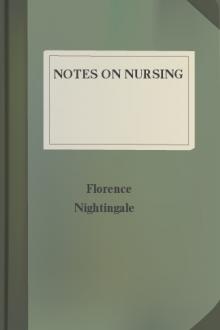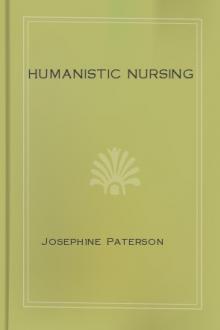Genre Health & Fitness. Page - 4

ter or butter, 2 tablespoons choppedparsley, 1 tablespoon wholemeal flour, 1-1/2 pints water.
First put on the chestnuts (without shelling or pricking) in cold water,and boil for an hour. Then remove shells and put the nuts in an enamelledsaucepan with the fat. Fry for 10 minutes. Add the flour gradually,stirring all the time, then add the water. Cook gently for half an hour.Lastly, add the parsley, boil up, and serve.
It is rather nicer if the flour is omitted, the necessary thickness beingobtained by rubbing the soup through a sieve before adding the parsley.Those who do not object to milk may use 1 pint milk and 1 pint water inplace of the 1-1/2 pints water.
5. FRUIT SOUP.
Fruit soups are used extensively abroad, although not much heard of inEngland. But they might be taken at breakfast with advantage by thosevegetarians who have given up the use of tea, coffee and cocoa, and objectto, or dislike, milk. The recipe given here is for apple soup, but pears,plu

the air without in the rooms you sleep in? Butfor this, you must have sufficient outlet for the impure air you makeyourselves to go out; sufficient inlet for the pure air from without tocome in. You must have open chimneys, open windows, or ventilators; noclose curtains round your beds; no shutters or curtains to your windows,none of the contrivances by which you undermine your own health ordestroy the chances of recovery of your sick.[4]
[Sidenote: When warmth must be most carefully looked to.]
A careful nurse will keep a constant watch over her sick, especiallyweak, protracted, and collapsed cases, to guard against the effects ofthe loss of vital heat by the patient himself. In certain diseasedstates much less heat is produced than in health; and there is aconstant tendency to the decline and ultimate extinction of the vitalpowers by the call made upon them to sustain the heat of the body. Caseswhere this occurs should be watched with the greatest care from hour tohour, I had almost said

th whom personally I had but a slight acquaintance, although I knew them somewhat by reputation. The younger one, Clinton Browne, is a young artist whose landscapes were beginning to attract wide attention in Boston, and the elder, Charles Herne, a Western gentleman of some literary attainments, but comparatively unknown here in the East. There is nothing about Mr. Herne that would challenge more than passing attention. If you had said of him, "He is well-fleshed, well-groomed, and intellectually well-thatched," you would have voiced the opinion of most of his acquaintances.
This somewhat elaborately upholstered old world has a deal of mere filling of one kind and another, and Mr. Herne is a part of it. To be sure, he leaves the category of excelsior very far behind and approaches very nearly to the best grade of curled hair, but, in spite of all this, he is simply a sort of social filling.
Mr. Browne, on the other hand, is a very different personage. Of medium height, closely knit, with the lat

fell sick, remote from assistance, in the solitude of their country houses.
Thus did the plague spread over England with unexampled rapidity, after it had first broken out in the county of Dorset, whence it advanced through the counties of Devon and Somerset, to Bristol, and thence reached Gloucester, Oxford and London. Probably few places escaped, perhaps not any; for the annuals of contemporaries report that throughout the land only a tenth part of the inhabitants remained alive.
From England the contagion was carried by a ship to Bergen, the capital of Norway, where the plague then broke out in its most frightful form, with vomiting of blood; and throughout the whole country, spared not more than a third of the inhabitants. The sailors found no refuge in their ships; and vessels were often seen driving about on the ocean and drifting on shore, whose crews had perished to the last man.
In Poland the affected were attacked with spitting blood, and died in a few days in such vast numbers

of the trouble, the invalidgets "well" only to drag out a miserable existence or to get veryill again.
Although any nervous suffering is worth while if it is the means ofteaching us how to avoid nervous strain, it certainly is farpreferable to avoid the strain without the extreme pain of a nervousbreakdown.
To point out many of these pernicious habits and to suggest apractical remedy for each and all of them is the aim of this book,and for that reason common examples in various phases of every-daylife are used as illustrations.
When there is no organic trouble there can be no doubt that _defectsof character, inherited or acquired, are at the root of all nervousillness._ If this can once be generally recognized and acknowledged,especially by the sufferers themselves, we are in a fair way towardeliminating such illness entirely.
The trouble is people suffer from mortification and an unwillingnessto look their bad habits in the face. They have not learned thathumiliation can be wholeso

cure of diseases by mental means. Müller's observation was in advance of his times, but could not be expected to include the results of the latest researches of modern science.
For a great many years physicians have recognized that not only are all diseases made worse by an incorrect mental attitude, but that some diseases are the direct result of worry and other mental disturbances. The mental force which causes colored water to act as an emetic, or postage-stamps to produce a blister, can also produce organic diseases of a serious nature. The large mental factor in the cause of diseases is generally admitted, and it seems reasonable to infer that what is caused by mental influence may be cured by the same means. There is no restriction in the power of the mind in causing disease, and should we restrict the mind as a factor in the cure? The trouble seems to be in the explanation. People ask, "How can the mind have such an effect upon the body?" and to the answer of this question we must now turn

s re-issue of Paterson and {v} Zderad's classic work will help to remind us of another way of developing our power. Perhaps we can, once again, look for and call for authentic dialogue with our patients, our students, and our colleagues. Paterson and Zderad are clear in their method: discuss, question, convey, clarify, argue, and reflect. They remind us of our uniqueness and our commonality. They tell us that it is necessary to do with and be with each other in order for any one of us to grow. They help us celebrate the power of our choices.
Is it ironic and fortunate that Humanistic Nursing should be re-issued now when it is needed even more than it was during the late 1970s? Then, humanitarianism was in vogue. Now, it is under attack as a secular religion.
Today, the technocratic imperative infiltrates an ever-increasing number of our lived experiences; and it becomes more difficult to ignore or dismiss Habermas's analysis that all interests have become technical rather than human.[6]

f his words and acts, the trifles he never considers,--is tremendous. Every moment of life he is changing to a degree the life of the whole world. Every man has an atmosphere which is affecting every other. So silent and unconsciously is this influence working, that man may forget that it exists.
All the forces of Nature,--heat, light, electricity and gravitation,-- are silent and invisible. We never see them; we only know that they exist by seeing the effects they produce. In all Nature the wonders of the "seen" are dwarfed into insignificance when compared with the majesty and glory of the "unseen." The great sun itself does not supply enough heat and light to sustain animal and vegetable life on the earth. We are dependent for nearly half of our light and heat upon the stars, and the greater part of this supply of life-giving energy comes from invisible stars, millions of miles from the earth. In a thousand ways Nature constantly seeks to lead men to a keener and deeper realization

expansive gaze over all allying and allied species, the intellect bodies forth to its vision the full appointed form of natural majesty; and after having experienced the manifold analogies and differentials of the many, is thereby enabled, when it returns to the study of the one, to view this one of human type under manifold points of interest, to the appreciation of which the understanding never wakens otherwise. If it did not happen that the study of the human form (confined to itself) had some practical bearing, such study could not deserve the name of anatomical, while anatomical means comparative, and whilst comparison implies inductive reasoning.
However, practical anatomy, such as it is, is concerned with an exact knowledge of the relationship of organs as they stand in reference to each other, and to the whole design of which these organs are the integral parts. The figure, the capacity, and the contents of the thoracic and abdominal cavities, become a study of not more urgent concernment to t

ER OF DAMAGES - Except for the "Right of Replacement or Refund" described in paragraph 1.F.3, the Project Gutenberg Literary Archive Foundation, the owner of the Project Gutenberg-tm trademark, and any other party distributing a Project Gutenberg-tm electronic work under this agreement, disclaim all liability to you for damages, costs and expenses, including legal fees. YOU AGREE THAT YOU HAVE NO REMEDIES FOR NEGLIGENCE, STRICT LIABILITY, BREACH OF WARRANTY OR BREACH OF CONTRACT EXCEPT THOSE PROVIDED IN PARAGRAPH F3. YOU AGREE THAT THE FOUNDATION, THE TRADEMARK OWNER, AND ANY DISTRIBUTOR UNDER THIS AGREEMENT WILL NOT BE LIABLE TO YOU FOR ACTUAL, DIRECT, INDIRECT, CONSEQUENTIAL, PUNITIVE OR INCIDENTAL DAMAGES EVEN IF YOU GIVE NOTICE OF THE POSSIBILITY OF SUCH DAMAGE.
1.F.3. LIMITED RIGHT OF REPLACEMENT OR REFUND - If you discover a defect in this electronic work within 90 days of receiving it, you can receive a refund of the money (if any) you paid for it by sending a written explanation to the person y